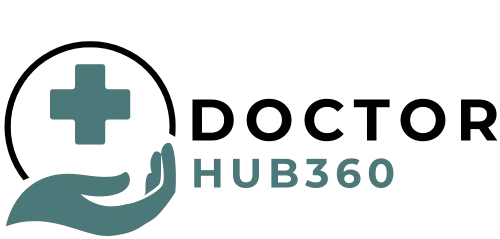Are Dentists Doctors Unraveled Truth Behind Dental Expertise

The question “are dentists doctors?” pops up more often than you might think. It’s a topic that stirs curiosity among patients, students, and even healthcare professionals. When you visit a dentist, you’re entrusting them with your oral health, but do they carry the same “doctor” title as the physician who treats your colds or broken bones? This article dives deep into that question, peeling back layers of education, history, and perception to reveal the truth. By exploring what makes someone a doctor, how dentists fit into that definition, and why it matters, we’ll settle the debate once and for all. Expect a thorough journey through facts, stories, and insights that show just how vital dentists are to the healthcare world.
Dentists deal with cavities, root canals, and braces, but their expertise goes far beyond your teeth. Many people don’t realize how their training and skills align with those of other medical professionals. So, are dentists doctors? Let’s start by defining what “doctor” really means and see where dentists land in that framework.
What Makes Someone a Doctor?
To figure out if dentists are doctors, we need to pin down what the word “doctor” actually signifies. At its core, the term comes from Latin, meaning “teacher.” Over time, it evolved to describe someone with the highest level of expertise in a field, usually marked by a doctoral degree. Think of a Doctor of Philosophy (PhD) in physics or a Doctor of Medicine (MD) in healthcare. These titles signal years of advanced study and mastery.
In healthcare, “doctor” often brings to mind a physician—someone who diagnoses illnesses, prescribes medications, and performs surgeries. But the title isn’t limited to MDs. Other professionals, like psychologists with a Doctor of Psychology (PsyD) or pharmacists with a Doctor of Pharmacy (PharmD), also claim it. The common thread is a doctoral-level education that equips them to tackle complex problems in their specialty.
Dentists fit into this picture with degrees like the Doctor of Dental Surgery (DDS) or Doctor of Dental Medicine (DMD). These credentials aren’t just fancy letters—they reflect rigorous training akin to what physicians undergo. Still, some argue that “doctor” should only apply to those treating the whole body, not just the mouth. That view, though, overlooks how interconnected oral health is to overall wellness. To settle this, let’s look at what dentists go through to earn their titles.
Must Visit: Doctorhub360.com Amino Acids: Unlocking the Building Blocks of Health.
The Education and Training of Dentists
If you’ve ever wondered whether dentists are doctors, their education offers a big clue. Becoming a dentist isn’t a quick or easy path. It starts with a bachelor’s degree, often heavy on sciences like biology and chemistry. That’s just the warmup. Next comes dental school, a four-year grind where students earn their DDS or DMD.
What’s the difference between DDS and DMD? Not much, honestly. Both degrees are equivalent, with the name depending on the school. Harvard, for instance, awards DMDs, while many others stick with DDS. The American Dental Association (ADA) confirms they’re identical in scope and rigor. Either way, these programs pack a punch.
Dental school blends classroom learning with hands-on practice. Students study anatomy, focusing on the head and neck, and dive into subjects like pathology and pharmacology. They learn how diseases show up in the mouth and how medications affect oral tissues. Then there’s the clinical side—hours spent perfecting fillings, extractions, and even surgical procedures. By the time they graduate, dentists are skilled at diagnosing and treating a wide range of conditions.
Some don’t stop there. Specialties like orthodontics (think braces) or oral surgery require extra years of training, sometimes up to six more. Compare that to physicians: medical school takes four years too, followed by residencies that can last three to seven years. The timelines and intensity are strikingly similar. So, when people ask, “Are dentists doctors?” the answer hinges on this: they earn doctoral degrees through education just as demanding as an MD’s.
Must Visit: Doctorhub360.com Neurological Diseases: Expert Insights & Care.
The Role of Dentists in Healthcare
Education aside, what dentists do day-to-day solidifies their status. Are dentists doctors in practice, not just on paper? Absolutely. They’re frontline healthcare providers, zeroing in on the mouth but impacting the whole body. Oral health isn’t a side note—it’s a cornerstone of well-being.
Dentists prevent and treat issues like cavities, gum disease, and tooth loss. That might sound routine, but their work has bigger ripples. Poor oral health links to diabetes, heart disease, and even pregnancy complications, according to the Mayo Clinic. Dentists often spot these red flags first. A patient with swollen gums might get referred to a physician for blood sugar tests. In that way, they’re gatekeepers to broader care.
Their toolkit is impressive too. They wield scalpels for surgeries, prescribe antibiotics, and use X-rays to diagnose hidden problems. Take oral cancer—a dentist might catch it early during a checkup, potentially saving a life. The National Institute of Dental and Craniofacial Research notes that 60% of cases are found by dental pros. That’s not “just teeth”—that’s serious medicine.
Dentists also team up with other doctors. A child with a cleft palate might see a dentist, surgeon, and speech therapist working in sync. In hospitals, oral surgeons handle trauma cases alongside MDs. Their role isn’t separate from healthcare; it’s woven into it. So, are dentists doctors in the eyes of the system? Their contributions scream yes.
Must Visit: DoctorHub360.com Weight Loss Plan: Achieve Sustainable Results.
Historical Perspectives on Dentists as Doctors
To fully grasp whether dentists are doctors, let’s rewind a bit. Dentistry wasn’t always the polished profession it is today. Back in the Middle Ages, tooth troubles fell to barbers or blacksmiths—hardly doctor material. They’d yank teeth with pliers, no anesthesia, no sterilization. It was brutal and basic.
By the 18th century, things shifted. Pierre Fauchard, often called the father of modern dentistry, changed the game. His 1728 book, The Surgeon Dentist, laid out scientific approaches to oral care. He wasn’t a barber; he was a trained surgeon who saw dentistry as a medical art. That’s when the “doctor” idea started bubbling.
Fast forward to 1840—America’s first dental school opened at the Baltimore College of Dental Surgery. It wasn’t a sideline to medicine; it was a standalone profession awarding doctoral degrees. Over time, dentistry carved its niche, distinct yet parallel to physician-led medicine. The DDS degree, born then, still stands today.
Historically, though, dentists fought for recognition. Physicians sometimes gatekept the “doctor” title, arguing their broader scope trumped dentistry’s focus. Yet, as science revealed the mouth’s role in health—like how infections there could spark pneumonia—the lines blurred. Today, history backs the case: dentists are doctors, shaped by a legacy of medical progress.
Must Visit: Doctorhub360.com Sexual Health Guide for Better Living.
Public Perception and Cultural Differences
Even with all this evidence, not everyone agrees dentists are doctors. Why? Perception plays a huge role. In everyday chatter, “doctor” often means the person you see for a fever or a sprained ankle. Dentists, tied to checkups and drills, can feel like a different breed.
Culturally, it varies. In the U.S., dentists are legally doctors—licensed, degree-holding pros. Walk into any dental office, and you’ll see “Dr.” before their names. The ADA reinforces this, stating they’ve earned the title through education and practice. But in casual talk, some patients still hesitate. “He’s my dentist, not my doctor,” they might say, splitting hairs over specialties.
Globally, it’s patchier. In the UK, dentists are respected but often called “Mr.” or “Ms.” unless they’ve got extra medical credentials, a nod to surgical traditions. In India, dentists proudly use “Dr.,” reflecting their doctoral status in a country that values academic titles. A 2023 study in the Journal of Dental Education found 70% of Americans see dentists as doctors, but cultural quirks shape the rest.
Stories highlight this divide. Take Dr. Thomas Connelly, a dentist who rebuilt Mike Tyson’s smile. He’s a doctor by training, yet fans might not call him that. Perception lags behind reality sometimes. Still, as awareness grows—especially with campaigns linking oral and overall health—the gap narrows.
Must Visit: Discover Doctorhub360 com Weight Loss App for Easy Results.
Why It Matters: The Importance of the Title
So, are dentists doctors? Yes—but why does it matter? Recognizing them as such isn’t just semantics; it’s about respect and impact. That “Dr.” isn’t a perk; it’s a badge of their grueling education and expertise. Downplaying it risks undervaluing their role.
For patients, it builds trust. Knowing your dentist is a doctor can ease nerves before a root canal. It signals they’re not just technicians but professionals steeped in medical knowledge. A 2022 survey by the ADA found patients who saw dentists as doctors were 25% more likely to keep regular appointments. Trust translates to better care.
It also affects the profession. Dentists fight for equal footing in healthcare policy—like insurance coverage for oral procedures. If they’re not doctors in society’s eyes, those battles get tougher. Yet their work saves lives, from catching cancers to preventing infections that could turn deadly.
Consider Dr. Weston Price, a dentist whose early 20th-century research tied oral bacteria to chronic diseases. Critics dismissed him as “just a dentist.” Today, his findings shape modern medicine. The title matters because it validates their place at the table.
Must Visit: Doctorhub360 com Weight Loss Login: Your Personalized Solution.
Challenges in Defining Dentists as Doctors
Despite the case for dentists as doctors, challenges linger. One big hurdle is scope. Physicians argue their whole-body focus outranks dentistry’s narrower lens. A heart surgeon might scoff at equating their work with a filling. But that misses the point—expertise isn’t about breadth alone; depth counts too.
Regulation adds murkiness. In some states, dentists can’t prescribe certain drugs MDs can, fueling the “not real doctors” narrative. Yet, their scope is expanding—some now administer Botox or treat sleep apnea, blurring lines further. A 2024 report from the American Association of Dental Boards shows 15 states now allow such crossover, hinting at change.
Public education lags too. Media rarely spotlight dentists as doctors, sticking them in a dental-only box. Overcoming that takes time and storytelling—like highlighting Dr. Deborah Wheeler, a dentist who pioneered teledentistry during the COVID-19 pandemic, proving their adaptability matches any MD’s.
Must Visit: Allintitle:How to Get Prescribed Ozempic For Weight Loss.
Case Studies: Dentists Making a Medical Impact
Real-world examples cement the argument. Are dentists doctors? Ask Dr. Harold Katz. He didn’t just fix teeth—he invented TheraBreath, a mouthwash tackling halitosis linked to medical conditions. His dental roots led to a health breakthrough sold worldwide.
Then there’s Dr. Ina Pockrass, a dentist who co-founded a nonprofit bringing oral care to underserved communities. Her work cut infection rates tied to systemic diseases, showing dentistry’s medical stakes. In 2023 alone, her team served 10,000 patients, many avoiding hospital stays thanks to her care.
Or take Dr. Mark Roettger, an oral surgeon who rebuilt jaws shattered in accidents. Working alongside trauma MDs, he restored lives, not just smiles. These dentists aren’t outliers—they’re proof of the profession’s doctoral caliber.
Must Visit: Philadelphia Cream Cheese Nutrition Facts and Healthy Uses.
Conclusion
After all this, the answer is clear: yes, dentists are doctors. They earn doctoral degrees through years of tough education, mirroring physicians’ paths. Their role in healthcare—preventing, diagnosing, and treating—extends beyond teeth to life-saving impacts. History, science, and practice back them up.
Sure, perception and tradition muddy the waters. Some still see “doctor” as a physician-only club. But that’s shifting as people grasp how oral health ties to everything else. Dentists aren’t lesser pros—they’re specialists wielding doctoral-level skill in a critical field.
So next time you’re in the dental chair, know you’re with a doctor. Their title isn’t just deserved; it’s a testament to their expertise and a reminder of their worth. Are dentists doctors? Undoubtedly—and that truth shapes better health for us all.
For more Informative Blogs, visit Doctorhub360.net.
